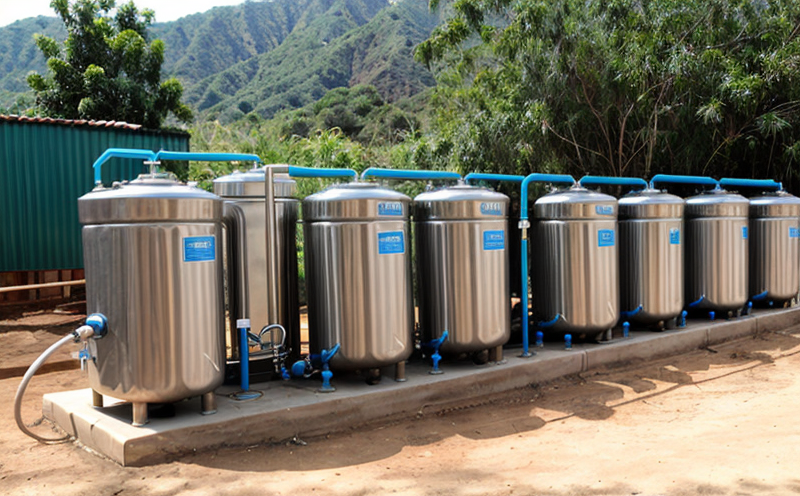ISO 5667-16 Biotesting of Wastewater Test
The ISO 5667-16 biotesting procedure is designed to assess the biodegradability of organic compounds in wastewater. This test is critical for environmental protection, ensuring that industrial and municipal wastewaters meet stringent regulatory standards before being released into natural water bodies.
This biotesting process involves inoculating a sample of wastewater with activated sludge, which contains microorganisms capable of degrading organic matter. The degradation rate and extent are monitored over time using biochemical oxygen demand (BOD) measurements or other relevant indicators. Compliance to ISO 5667-16 standards is crucial for industries involved in water treatment, chemical manufacturing, and pollution control.
The test provides insights into the potential environmental impact of wastewater discharge. By ensuring biodegradability, this procedure helps prevent eutrophication and other forms of water pollution that can harm aquatic ecosystems.
Our laboratory adheres strictly to ISO 5667-16 guidelines to deliver accurate results for our clients. We employ experienced chemists and microbiologists who understand the nuances of wastewater biotesting. Our advanced laboratory facilities, including temperature-controlled incubators, allow us to maintain consistent conditions throughout the testing process.
For industries reliant on ISO 5667-16 compliance, this test is essential for meeting regulatory requirements set by environmental protection agencies worldwide. It also assists in optimizing wastewater treatment processes and minimizing ecological footprint.
The biotesting procedure requires meticulous sample preparation, including dilution to ensure the inoculation with activated sludge is accurate. The testing process spans several days, during which we measure changes in parameters like pH levels, dissolved oxygen content, and other relevant indicators. Our team ensures that all steps are conducted according to ISO 5667-16 specifications.
The results of this test are used by quality managers, compliance officers, R&D engineers, and procurement teams to make informed decisions about wastewater treatment processes. By leveraging these insights, organizations can improve their environmental footprint while ensuring regulatory compliance.
Applied Standards
Our laboratory strictly adheres to the ISO 5667-16 standard for biotesting of wastewaters. This international standard ensures that our testing procedures are consistent and reliable, providing clients with accurate and reproducible results.
The standard specifies the methods for measuring biodegradability of organic compounds in wastewaters. It covers various aspects, including sample preparation, inoculation procedures, incubation conditions, and final analysis techniques.
By following ISO 5667-16 guidelines, we ensure that our test results are comparable with those from other laboratories worldwide. This standard is widely recognized by regulatory bodies and environmental protection agencies in numerous countries.
Why Choose This Test
The ISO 5667-16 biotesting procedure is a cornerstone for industries that produce or manage industrial wastewaters. By choosing this test, organizations can:
- Evaluate the environmental impact of their wastewater discharge.
- Ensure compliance with international and local regulations.
- Optimize treatment processes to enhance efficiency.
The test results are crucial for industries involved in chemical manufacturing, pharmaceuticals, and water treatment. By demonstrating biodegradability, companies can reduce the risk of environmental harm and improve their reputation as responsible stewards of natural resources.
The ISO 5667-16 procedure is also beneficial for R&D teams looking to innovate in wastewater management technologies. It provides a benchmark against which new treatment methods can be validated and compared.
International Acceptance and Recognition
- ISO 5667-16:2018 is widely recognized by regulatory bodies in Europe, North America, and Asia.
- This standard ensures that test results are accepted across borders, facilitating international trade in wastewater management technologies.
- Many countries have incorporated ISO 5667-16 into their national standards for water quality assessment.
The global acceptance of this standard underscores its importance in ensuring consistent and reliable testing practices. By adhering to ISO 5667-16, laboratories like ours contribute to the broader goal of protecting environmental quality worldwide.
Our clients benefit from the international recognition of our test results, making it easier for them to comply with regulations across different jurisdictions.





